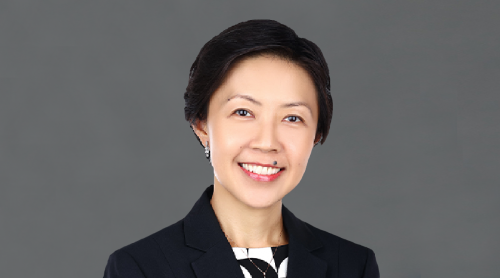Content navigation
Overview
The strategy seeks to capture nominal Asia ex. Japan GDP growth – not always reflected in stockmarket returns, by investing in businesses able to grow with the region. Making a long- term capital commitment to compound returns from high quality companies over time.
These businesses are identified by conducting extra due diligence through our accounting diagnostics process and an in-depth assessment of corporate governance.
Key Information
| Portfolio characteristics | Asia Long-Term Unconstrained |
|---|---|
| Objective | Long-Term Growth |
| Asset Class | Equities |
| Style | Quality |
| Investable Universe | Asia |
| Benchmark | Unconstrained |
| Market capitalisation | All-Cap |
| Sector/country allocations | Unconstrained |
| Number of stocks | 20-30 |
| Maximum active stock weight | 10% or 10% of company ownership |
| Portfolio turnover | < 30% p.a. |
| Inception | July 2008 |
-
"Asia's growth story in recent decades has been impressive and there are exciting prospects for the future."
Andrew Graham, Head of Asia
Why Invest in Global Emerging Markets

Concentrated
Our concentrated portfolio means that each and every one of our 20-30 holdings makes an impact.

Unconstrained
We invest only in our highest conviction ideas, leading to differentiated performance.

Quality
We believe investing in high quality names translates growth into investor returns. We focus on accounting and governance to identify high quality companies.

Long-term
Investing over a long-term horizon enables the compounding of returns over time. Our long-term focus also helps minimise portfolio turnover.
Investment Strategy
We aim to invest in businesses that are able to grow with the region, but which more importantly can translate that growth into good returns for shareholders. Acquiring them on a reasonable valuation, based on an in-depth assessment of their long-term potential.
- These opportunities are scarce and when we find one, we aim to make a long-term capital commitment – to minimise costs and maximise the positive effect of compounding high returns from good businesses
- The level of conviction in our portfolio is driven by the high hurdles we set, both in the quality of the franchise in which we invest and in finding this quality at a reasonable valuation.
- We build unconstrained, concentrated portfolios diversified by country, sector and business maturity. We seek to avoid the permanent erosion of capital by undertaking thorough due diligence on companies including our accounting diagnostic analysis.

Investment Team

Andrew Graham
- Job title
- Head of Asia

Michael Millar
- Job title
- Portfolio Manager

Jes Goh, CFA
- Job title
- Portfolio Manager

Tom Wills, CFA
- Job title
- Portfolio Manager

Zhang Yu, CFA
- Job title
- Investment Analyst
Our Capabilities
Contact Us

Mel Bucher
Head of Global Distribution
T: +44 (0) 131 479 4748
M: +44 (0) 758 414 7720
E: mbucher@martincurrie.com
Please visit our contact page or speak to a member of our sales team, to discuss the most appropriate investment to meet your requirements and for more information on our investment capabilities.
Contact Us

Mel Bucher
Head of Global Distribution
T: +44 (0) 131 479 4748
M: +44 (0) 758 414 7720
E: mbucher@martincurrie.com

Mark Elliott
Head of UK Business Development, Senior Client Portfolio Manager
M:+44 (0) 779 5044 961
E: melliott@martincurrie.com
Please visit our contact page or speak to a member of our sales team, to discuss the most appropriate investment to meet your requirements and for more information on our investment capabilities.
Contact Us

Mel Bucher
Head of Global Distribution
T: +44 (0) 131 479 4748
M: +44 (0) 758 414 7720
E: mbucher@martincurrie.com

Susan Gim
Client Portfolio Manager, Global Emerging Markets
T: +1 212-632-3263
E: sgim@martincurrie.com
Please visit our contact page or speak to a member of our sales team, to discuss the most appropriate investment to meet your requirements and for more information on our investment capabilities.
Contact Us

Mel Bucher
Head of Global Distribution
T: +44 (0) 131 479 4748
M: +44 (0) 758 414 7720
E: mbucher@martincurrie.com

Susan Gim
Client Portfolio Manager, Global Emerging Markets
T: +1 212-632-3263
E: sgim@martincurrie.com
Please visit our contact page or speak to a member of our sales team, to discuss the most appropriate investment to meet your requirements and for more information on our investment capabilities.
Contact Us

Mel Bucher
Head of Global Distribution
T: +44 (0) 131 479 4748
M: +44 (0) 758 414 7720
E: mbucher@martincurrie.com

Danni Yang, CFA®
Client Portfolio Manager, Global Long-Term Unconstrained
M: +44 (0) 7826548065
E: dyang@martincurrie.com
Please visit our contact page or speak to a member of our sales team, to discuss the most appropriate investment to meet your requirements and for more information on our investment capabilities.
Contact Us

Mark Cho, CFA®
Head of North American Business Development, Senior Client Portfolio Manager
T: +1 212 632 3292
E: mcho@martincurrie.com

Breanna Ellsworth, CFA®
Client Portfolio Manager
T: +1 212 632 3293
E: bellsworth@martincurrie.com

Drew Comatos
Client Portfolio Manager
T: +1 203 703 6472
E: dcomatos@martincurrie.com
Please visit our contact page or speak to a member of our sales team, to discuss the most appropriate investment to meet your requirements and for more information on our investment capabilities.
Contact Us

Mark Cho, CFA®
Head of North American Business Development, Senior Client Portfolio Manager
T: +1 212 632 3292
E: mcho@martincurrie.com

Breanna Ellsworth, CFA®
Client Portfolio Manager
T: +1 212 632 3293
E: bellsworth@martincurrie.com

Drew Comatos
Client Portfolio Manager
T: +1 203 703 6472
E: dcomatos@martincurrie.com
Please visit our contact page or speak to a member of our sales team, to discuss the most appropriate investment to meet your requirements and for more information on our investment capabilities.
Contact Us

Ross Kent
Client Portfolio Manager, Australian Equities
T: +61 (0)3 9017 8629
E: rkent@martincurrie.com.au

Felicity Walsh
Managing Director, Australia and New Zealand
E: Felicity.Walsh@franklintempleton.com
Please visit our contact page or speak to a member of our sales team, to discuss the most appropriate investment to meet your requirements and for more information on our investment capabilities.
Related Insights
-

Global Emerging Markets Performance Review Q2 2024
We provide a performance review on Global Emerging Markets for the second quarter of 2024.
- Date published
- 11 Jul 2024
- Tag
- Global Emerging Markets
-

The Indian and Mexican elections
We highlight our Global Emerging Markets team’s thoughts on the expectations, outcomes and implications for markets following the results.
- Date published
- 12 Jun 2024
- Tag
- Global Emerging Markets
-

A beginner’s guide to semiconductors
An overview of the semiconductors, taking a look at the manufacturing process, key industry players and the current shape of the industry.
- Date published
- 10 Jun 2024
- Tag
- Global Emerging Markets
Important information
This information is issued and approved by Martin Currie Investment Management Limited (‘MCIM’), authorised and regulated by the Financial Conduct Authority. It does not constitute investment advice. Market and currency movements may cause the capital value of shares, and the income from them, to fall as well as rise and you may get back less than you invested.
The information contained in this document has been compiled with considerable care to ensure its accuracy. However, no representation or warranty, express or implied, is made to its accuracy or completeness. Martin Currie has procured any research or analysis contained in this document for its own use. It is provided to you only incidentally and any opinions expressed are subject to change without notice.
The document does not form the basis of, nor should it be relied upon in connection with, any subsequent contract or agreement. It does not constitute, and may not be used for the purpose of, an offer or invitation to subscribe for or otherwise acquire shares in any of the products mentioned.
Past performance is not a guide to future returns.
The distribution of specific products is restricted in certain jurisdictions, investors should be aware of these restrictions before requesting further specific information.
The views expressed are opinions of the portfolio managers as of the date of this document and are subject to change based on market and other conditions and may differ from other portfolio managers or of the firm as a whole. These opinions are not intended to be a forecast of future events, research, a guarantee of future results or investment advice.
The analysis of Environmental, Social and Governance (ESG) factors forms an important part of the investment process and helps inform investment decisions. The strategy/ies do not necessarily target particular sustainability outcomes.
Risk warnings – Investors should also be aware of the following risk factors which may be applicable to the strategy shown in this document.
- Investing in foreign markets introduces a risk where adverse movements in currency exchange rates could result in a decrease in the value of your investment.
- This strategy may hold a limited number of investments. If one of these investments falls in value this can have a greater impact on the strategy’s value than if it held a larger number of investments.
- Smaller companies may be riskier and their shares may be less liquid than larger companies, meaning that their share price may be more volatile.
- Emerging markets or less developed countries may face more political, economic or structural challenges than developed countries. Accordingly, investment in emerging markets is generally characterised by higher levels of risk than investment in fully developed markets.
- The strategy may invest in derivatives, Index futures and FX forwards to obtain, increase or reduce exposure to underlying assets.
- The use of derivatives may result in greater fluctuations of returns due to the value of the derivative not moving in line with the underlying assets. Certain types of derivatives can be difficult to purchase or sell in certain market conditions.
Important information
This information is issued and approved by Martin Currie Investment Management Limited (‘MCIM’), authorised and regulated by the Financial Conduct Authority. It does not constitute investment advice. Market and currency movements may cause the capital value of shares, and the income from them, to fall as well as rise and you may get back less than you invested.
The information contained in this document has been compiled with considerable care to ensure its accuracy. However, no representation or warranty, express or implied, is made to its accuracy or completeness. Martin Currie has procured any research or analysis contained in this document for its own use. It is provided to you only incidentally and any opinions expressed are subject to change without notice.
The document does not form the basis of, nor should it be relied upon in connection with, any subsequent contract or agreement. It does not constitute, and may not be used for the purpose of, an offer or invitation to subscribe for or otherwise acquire shares in any of the products mentioned.
Past performance is not a guide to future returns.
The distribution of specific products is restricted in certain jurisdictions, investors should be aware of these restrictions before requesting further specific information.
The views expressed are opinions of the portfolio managers as of the date of this document and are subject to change based on market and other conditions and may differ from other portfolio managers or of the firm as a whole. These opinions are not intended to be a forecast of future events, research, a guarantee of future results or investment advice.
The analysis of Environmental, Social and Governance (ESG) factors forms an important part of the investment process and helps inform investment decisions. The strategy/ies do not necessarily target particular sustainability outcomes.
Risk warnings – Investors should also be aware of the following risk factors which may be applicable to the strategy shown in this document.
- Investing in foreign markets introduces a risk where adverse movements in currency exchange rates could result in a decrease in the value of your investment.
- This strategy may hold a limited number of investments. If one of these investments falls in value this can have a greater impact on the strategy’s value than if it held a larger number of investments.
- Smaller companies may be riskier and their shares may be less liquid than larger companies, meaning that their share price may be more volatile.
- Emerging markets or less developed countries may face more political, economic or structural challenges than developed countries. Accordingly, investment in emerging markets is generally characterised by higher levels of risk than investment in fully developed markets.
- The strategy may invest in derivatives, Index futures and FX forwards to obtain, increase or reduce exposure to underlying assets.
- The use of derivatives may result in greater fluctuations of returns due to the value of the derivative not moving in line with the underlying assets. Certain types of derivatives can be difficult to purchase or sell in certain market conditions.
For professional investors in Canada.
This material is intended for residents in, or incorporated in, Canada and are a Permitted Client for the purposes of MI 31-103. The information on this section of the website is not intended for use by any other person, including members of the public.
Martin Currie Inc, incorporated in New York with its registered office at 280 Park Avenue, New York, NY 10017 and having a UK branch registered in Scotland (no SF000300), Head office, 5 Morrison Street, 2nd floor, Edinburgh, EH3 8BH, Tel: +44 (0) 131 229 5252 Fax: +44 (0) 131 222 2532 www.martincurrie.com, operates under the International Adviser Exemption with the Ontario Securities Commission (‘OSC’) and is therefore currently not required to be registered as a portfolio manager for the purposes of MI 31-103. Martin Currie Inc. is also authorised by the UK Financial Conduct Authority.
For the avoidance of doubt, nothing excludes, limits or restricts our obligations to you under the UK Financial Services and Market Act 2000, National Instruments or any other applicable law or regulation.
The opinions and views in this website do not take into account your individual circumstances, objectives, or needs and are not intended to be recommendations of particular financial instruments or strategies to you. This website does not identify all the risks (direct or indirect) or other considerations which might be material to you when entering any financial transaction. You should consult with your professional advisers before undertaking any investment activity. The information provided on this website should not be treated as advice or a recommendation to buy or sell any particular security or other investment. The information on this website has not been reviewed by any competent regulatory authority.
Important information
This information is issued and approved by Martin Currie Investment Management Limited (‘MCIM’), authorised and regulated by the Financial Conduct Authority. It does not constitute investment advice. Market and currency movements may cause the capital value of shares, and the income from them, to fall as well as rise and you may get back less than you invested.
The information contained in this document has been compiled with considerable care to ensure its accuracy. However, no representation or warranty, express or implied, is made to its accuracy or completeness. Martin Currie has procured any research or analysis contained in this document for its own use. It is provided to you only incidentally and any opinions expressed are subject to change without notice.
The document does not form the basis of, nor should it be relied upon in connection with, any subsequent contract or agreement. It does not constitute, and may not be used for the purpose of, an offer or invitation to subscribe for or otherwise acquire shares in any of the products mentioned.
Past performance is not a guide to future returns.
The distribution of specific products is restricted in certain jurisdictions, investors should be aware of these restrictions before requesting further specific information.
The views expressed are opinions of the portfolio managers as of the date of this document and are subject to change based on market and other conditions and may differ from other portfolio managers or of the firm as a whole. These opinions are not intended to be a forecast of future events, research, a guarantee of future results or investment advice.
The analysis of Environmental, Social and Governance (ESG) factors forms an important part of the investment process and helps inform investment decisions. The strategy/ies do not necessarily target particular sustainability outcomes.
Risk warnings – Investors should also be aware of the following risk factors which may be applicable to the strategy shown in this document.
- Investing in foreign markets introduces a risk where adverse movements in currency exchange rates could result in a decrease in the value of your investment.
- This strategy may hold a limited number of investments. If one of these investments falls in value this can have a greater impact on the strategy’s value than if it held a larger number of investments.
- Smaller companies may be riskier and their shares may be less liquid than larger companies, meaning that their share price may be more volatile.
- Emerging markets or less developed countries may face more political, economic or structural challenges than developed countries. Accordingly, investment in emerging markets is generally characterised by higher levels of risk than investment in fully developed markets.
- The strategy may invest in derivatives, Index futures and FX forwards to obtain, increase or reduce exposure to underlying assets.
- The use of derivatives may result in greater fluctuations of returns due to the value of the derivative not moving in line with the underlying assets. Certain types of derivatives can be difficult to purchase or sell in certain market conditions.
For wholesale investors in Australia.
This material is provided on the basis that you are a wholesale client within the definition of ASIC Class Order 03/1099. MCIM is authorised and regulated by the FCA under UK laws, which differ from Australian laws.
Important information
This information is issued and approved by Martin Currie Investment Management Limited (‘MCIM’), authorised and regulated by the Financial Conduct Authority. It does not constitute investment advice. Market and currency movements may cause the capital value of shares, and the income from them, to fall as well as rise and you may get back less than you invested.
The information contained in this document has been compiled with considerable care to ensure its accuracy. However, no representation or warranty, express or implied, is made to its accuracy or completeness. Martin Currie has procured any research or analysis contained in this document for its own use. It is provided to you only incidentally and any opinions expressed are subject to change without notice.
The document does not form the basis of, nor should it be relied upon in connection with, any subsequent contract or agreement. It does not constitute, and may not be used for the purpose of, an offer or invitation to subscribe for or otherwise acquire shares in any of the products mentioned.
Past performance is not a guide to future returns.
The distribution of specific products is restricted in certain jurisdictions, investors should be aware of these restrictions before requesting further specific information.
The views expressed are opinions of the portfolio managers as of the date of this document and are subject to change based on market and other conditions and may differ from other portfolio managers or of the firm as a whole. These opinions are not intended to be a forecast of future events, research, a guarantee of future results or investment advice.
The analysis of Environmental, Social and Governance (ESG) factors forms an important part of the investment process and helps inform investment decisions. The strategy/ies do not necessarily target particular sustainability outcomes.
Risk warnings – Investors should also be aware of the following risk factors which may be applicable to the strategy shown in this document.
- Investing in foreign markets introduces a risk where adverse movements in currency exchange rates could result in a decrease in the value of your investment.
- This strategy may hold a limited number of investments. If one of these investments falls in value this can have a greater impact on the strategy’s value than if it held a larger number of investments.
- Smaller companies may be riskier and their shares may be less liquid than larger companies, meaning that their share price may be more volatile.
- Emerging markets or less developed countries may face more political, economic or structural challenges than developed countries. Accordingly, investment in emerging markets is generally characterised by higher levels of risk than investment in fully developed markets.
- The strategy may invest in derivatives, Index futures and FX forwards to obtain, increase or reduce exposure to underlying assets.
- The use of derivatives may result in greater fluctuations of returns due to the value of the derivative not moving in line with the underlying assets. Certain types of derivatives can be difficult to purchase or sell in certain market conditions.
For professional investors.
In Hong Kong:
The contents of this document have not been reviewed by any regulatory authority in Hong Kong. You are advised to exercise caution in relation to the offer. If you are in any doubt about any of the contents of this document, you should obtain independent professional advice.
In Singapore:
This document is provided by Templeton Asset Management Limited
(Registration Number (UEN): 199205211E) which is licensed by the Monetary Authority of Singapore and whose business address is at 7 Temasek Boulevard, #38-03, Suntec Tower One, Singapore, 038987. Templeton Asset Management Limited is a wholly owned subsidiary of Franklin Resources, Inc. This document is for information only and does not constitute an offer or solicitation to buy or sell any units in any fund. This advertisement or publication has not been reviewed by the Monetary Authority of Singapore. Martin Currie is not registered with or regulated by any regulatory authorities in Singapore.
This material is provided on the basis that you are a wholesale client within the definition of ASIC Class Order 03/1099. MCIM is authorised and regulated by the FCA under UK laws, which differ from Australian laws.
In Korea:
This document is for information purposes only. It is prepared and presented to provide an introduction to the business of MCIM and its related companies(collectively known as ‘Martin Currie’). This document does not constitute an offer to sell or a solicitation of any offer to invest in any security, fund or other vehicle managed or advised by Martin Currie.
None of the security(ies), fund(s) or vehicle(s) managed by or advised by Martin Currie are registered in South Korea under the Financial Investment Services and Capital Markets Act of Korea and accordingly, none of these instruments nor any interest therein may be offered, sold or delivered, or offered or sold to any person for re-offering or resale, directly or indirectly, in South Korea or to any resident of South Korea except pursuant to applicable laws and regulations of South Korea. Martin Currie is not registered with or regulated by any regulatory authorities in South Korea.
In China:
This document does not constitute a public offer of the strategy, whether by sale or subscription, in the People’s Republic of China (the “PRC”). These strategies are not being offered or sold directly or indirectly in the PRC to or for the benefit of, legal or natural persons of the PRC. Further, no legal or natural persons of the PRC may directly or indirectly purchase any of the strategy or any beneficial interest therein without obtaining all prior PRC’s governmental approvals that are required, whether statutorily or otherwise. Persons who come into possession of this document are required by the issuer and its representatives to observe these restrictions.
Important information
This information is issued and approved by Martin Currie Investment Management Limited (‘MCIM’), authorised and regulated by the Financial Conduct Authority. It does not constitute investment advice. Market and currency movements may cause the capital value of shares, and the income from them, to fall as well as rise and you may get back less than you invested.
The information contained in this document has been compiled with considerable care to ensure its accuracy. However, no representation or warranty, express or implied, is made to its accuracy or completeness. Martin Currie has procured any research or analysis contained in this document for its own use. It is provided to you only incidentally and any opinions expressed are subject to change without notice.
The document does not form the basis of, nor should it be relied upon in connection with, any subsequent contract or agreement. It does not constitute, and may not be used for the purpose of, an offer or invitation to subscribe for or otherwise acquire shares in any of the products mentioned.
Past performance is not a guide to future returns.
The distribution of specific products is restricted in certain jurisdictions, investors should be aware of these restrictions before requesting further specific information.
The views expressed are opinions of the portfolio managers as of the date of this document and are subject to change based on market and other conditions and may differ from other portfolio managers or of the firm as a whole. These opinions are not intended to be a forecast of future events, research, a guarantee of future results or investment advice.
The analysis of Environmental, Social and Governance (ESG) factors forms an important part of the investment process and helps inform investment decisions. The strategy/ies do not necessarily target particular sustainability outcomes.
Risk warnings – Investors should also be aware of the following risk factors which may be applicable to the strategy shown in this document.
- Investing in foreign markets introduces a risk where adverse movements in currency exchange rates could result in a decrease in the value of your investment.
- This strategy may hold a limited number of investments. If one of these investments falls in value this can have a greater impact on the strategy’s value than if it held a larger number of investments.
- Smaller companies may be riskier and their shares may be less liquid than larger companies, meaning that their share price may be more volatile.
- Emerging markets or less developed countries may face more political, economic or structural challenges than developed countries. Accordingly, investment in emerging markets is generally characterised by higher levels of risk than investment in fully developed markets.
- The strategy may invest in derivatives, Index futures and FX forwards to obtain, increase or reduce exposure to underlying assets.
- The use of derivatives may result in greater fluctuations of returns due to the value of the derivative not moving in line with the underlying assets. Certain types of derivatives can be difficult to purchase or sell in certain market conditions.

